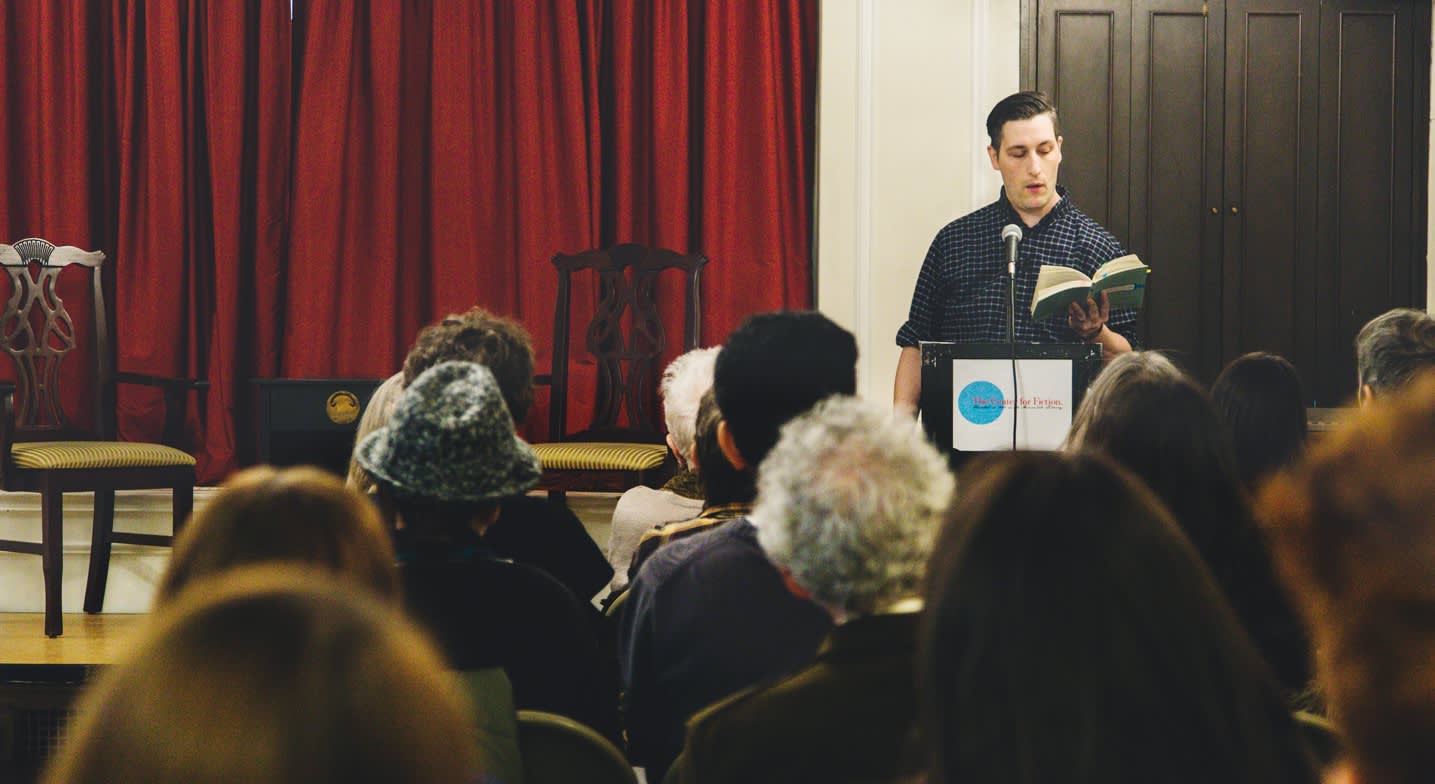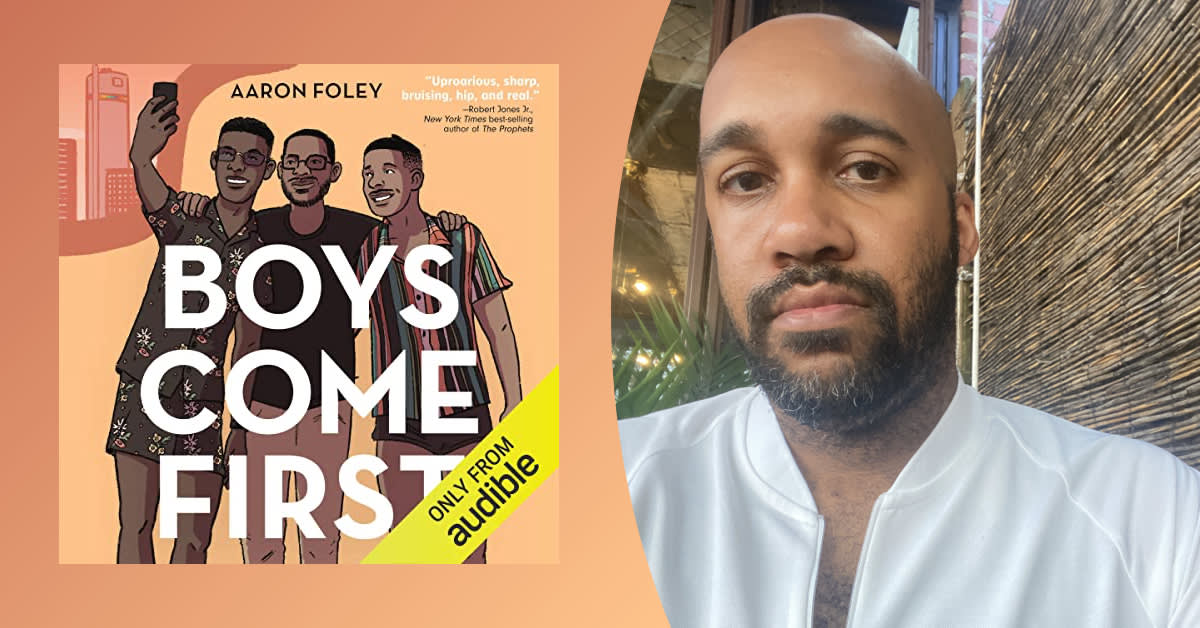When writer Mike Scalise applied for the Christopher Doheny Award, he didn’t know much about its namesake. The description of the award, which provides $10,000 and publication assistance for an unpublished manuscript about a serious illness, included just one short paragraph about Doheny.
“After I won, I learned how much the award meant,” says Scalise. “It added to the specialness of it.”
He and Doheny shared a lot: a life-shaping illness and a deep dedication to the literature that helped the world understand it.
Doheny endeavored to write the first novel about cystic fibrosis — no author who suffered from the disease had ever lived long enough to do so. But Doheny, a longtime Audible employee who rose from intern to editorial manager, died at age 31 in 2013, before he could finish the book. The Christopher Doheny Award was established by Audible in order to help authors turn their works into books that would, like Doheny wanted, help the world understand his or her own affliction. Audible turned to the Center for Fiction, well known for their work with authors and for their awards program, to administer the award by soliciting manuscripts and facilitating the judging process.
When he won the award in 2014, Scalise’s manuscript, The Brand New Catastrophe, had fallen by the wayside — a dream he’d given up on after a slew of rejections from publishers. Now it’s out in print from Sarabande Books and receiving praise from Publishers Weekly, Buzzfeed, and Booklist. A witty and endearing memoir, it tells the story of how his life radically changed after a pituitary tumor left him first with acromegaly — a condition caused by excess growth hormones — and then ruptured, leaving him with no hormones at all.
Scalise calls himself a “very reluctant memoirist” who reveres long-form journalism. He wanted to approach his own story with the same sense of authority common to the well-reported pieces he admires. “I told the story with me in the center,” he says. “But I promised myself it would be in service of expanding the meaning."

2014’s Christopher Doheny Prize winner Mike Scalise at the Center for Fiction in February 2017.
Doheny began at Audible in the company’s early days, starting as a summer intern in 2002 during his junior year of college. He returned to the company after graduation, eventually finding his niche in the merchandising department, marketing books and organizing content on the website. He also helped select books to feature.
“He was one of my best friends,” says Diana Dapito, who started at the company six months after Doheny began full time. “I always joked that he was the bad cop to my good cop, and that’s how we got a lot of our work done.”
Doheny’s sharp eye for recognizing good literature was widely recognized. Beth Anderson, Audible’s executive vice president and publisher, supervised Doheny. She says he recognized Tinkers by Paul Harding very early after it was published, plucking it from a small publisher and advocating it be made into an audiobook. It later won the Pulitzer Prize for fiction.
“He was wicked smart, very well read, funny, and exhibited enormous grace and strength when he was dealing with his disease,” says Anderson.
Doheny was initially very private about his illness, not telling anyone but a select few in the office that he was suffering from cystic fibrosis. When he began to be hospitalized regularly, he became more open about his condition and would talk about it frankly. Anderson recalls walking over to his desk while he was administering an IV, and he was unfazed. “He would walk around with them tucked into his pocket and carry on as if this were normal,” says Anderson, praising his strength.
Doheny continued to work at Audible until his illness became too much to manage. Anderson and other Audible employees then began visiting him at his home, and it was during one of these visits that they established the idea for the award.
“He knew he was going to die, I knew he was going to die, and I wanted to talk about a way to honor him and his spirit,” she says. “We decided it would be a good thing to encourage writers who hadn’t been published before … who were writing about serious diseases.”
Anderson and Dapito now sit on the panel of judges and say they have received submissions for books about everything from cancer and emotional illnesses to substance abuse. Some books, like Scalise’s, are memoirs. Others are guides for how to cope, and still others are fiction.

Dapito says the panel looks for books that “tell a larger story … something beyond that one individual’s piece.” She says the committee has been impressed with the quality of the submissions. Anderson agreed, adding that she was pleased the first three winners hadn’t been previously published.
“We’re helping to give them a start,” she says. “It’s not deliberate, we’re not necessarily looking for that, but it’s wonderful it turned out that way.”
Scalise won the 2014 award. He was preceded by Michelle Bailat-Jones in 2013. Her book, Fog Island Mountains, is a fantastical story about a man learning to cope with a terminal cancer diagnosis. The 2015 winner, Catherine Kapphahn, won the prize for her fictionalized memoir about “a daughter who gives a voice to her mother’s unspoken history and, in the process, heals them both.”
When Scalise received the email that he’d won the award, he was 10 minutes from leaving on the last day of a job he’d hated. His supervisor walked over, he says, just as he was beginning to weep from joy at his desk. “It was kind of the best thing that you could ever have happen on your last day,” he says.
By then, Scalise says, his book was “pretty much dead.” A couple of years before, it had sat around at a publisher for almost a year before they’d mutually agreed it wasn’t going to work. “Everybody had passed on it, and when I say everybody, I mean everybody,” he says. “I had gotten used to the idea that this thing I’d worked on for years would just be put in a drawer.”
The award allowed him to breathe new life into his manuscript, and helped him pair it with Sarabande — a not-for-profit publishing house based in Louisville, Ky., that he’d admired for years. “It was kind of the experience I’d always hoped for,” he says.
Since then, he’s narrated the book for Audible — an experience he says he still can’t describe. “I don’t even know if I could muster expectations for it. It was so strange,” he says, struggling to describe the joint feeling of having his first book come out and giving his own voice to it in audio form. “All at once it feels very exhilarating but also very alienating and strange.”
Scalise says it feels like the book lives two lives: There’s his very personal experience with it — writing it, and living through pain and joy of the publication process. And then there’s the experience others will have with it — picking it up off of a shelf, and taking new meaning from it. Neither would be possible without the Doheny Award.
“I’m somewhere in the middle of those two lives,” he says. “I just haven’t figured out where yet.”






